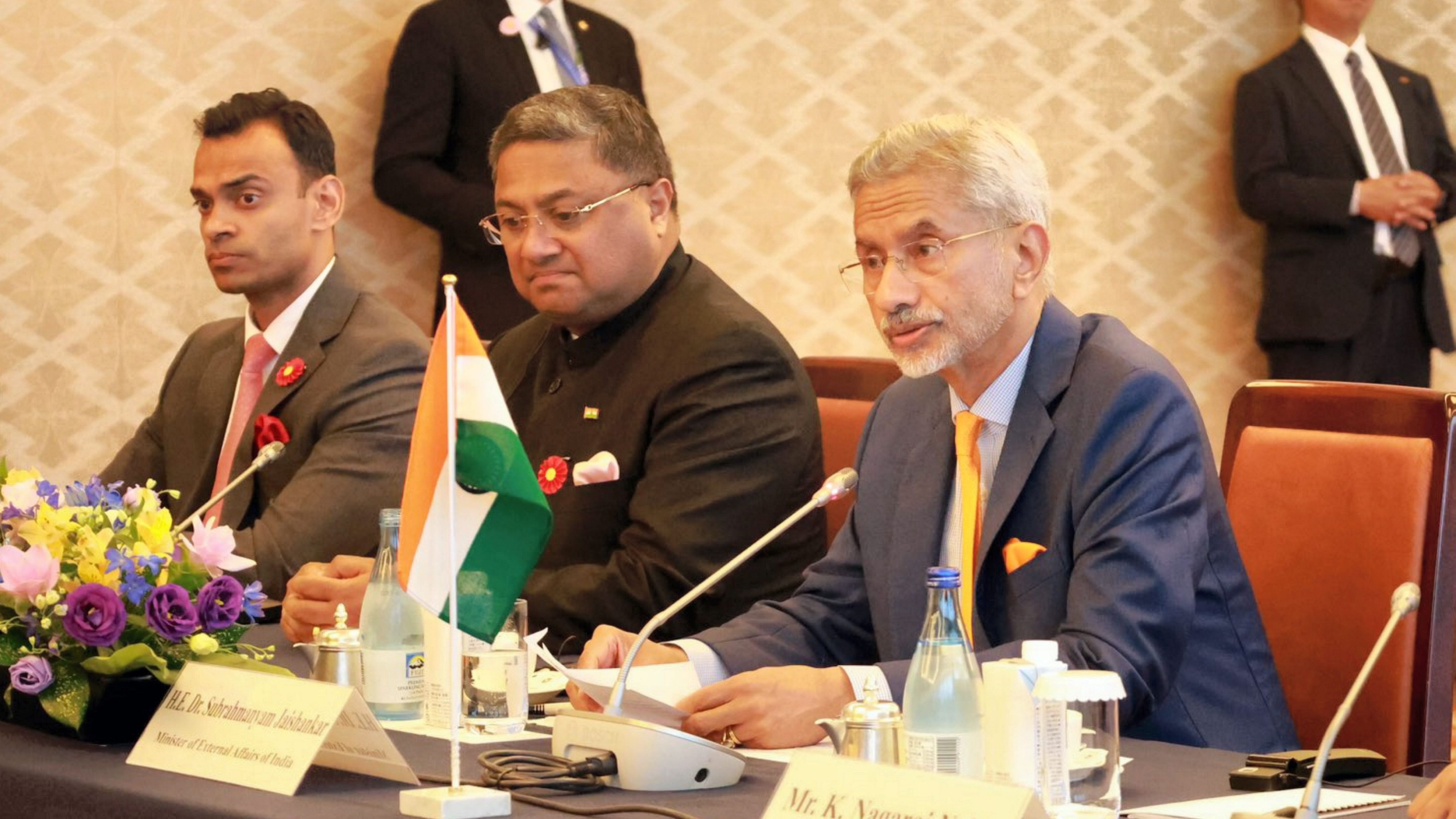
External Affairs Minister S Jaishankar addresses at the Quadrilateral Security Dialogue (Quad) ministerial meeting, in Tokyo.
Credit: PTI Photo
New Delhi: India is not looking to other countries to resolve its boundary dispute with China, External Affairs Minister S Jaishankar said on Monday, even as he joined his Australian, Japanese, and American counterparts to tacitly decry the communist country’s “intimidating and dangerous manoeuvres” in the South China Sea.
“We have a problem, or, I would say, an issue between India and China...I think it is for (the) two of us to talk it over and to find a way,” said Jaishankar who had two meetings with Chinese Foreign Ministers Wang Yi in Astana and Vientiane this month.
They discussed ways to expedite the mutual withdrawal of troops from the remaining face-off points along the Line of Actual Control (LAC) in eastern Ladakh to completely end the military stand-off, which started in April-May 2020 and brought the relations between the two neighbouring nations to a new low.
New Delhi has been consistently ruling out the possibility of any intervention by any third country in resolving the dispute between India and China.
“Obviously, other countries in the world would have an interest in the matter (India-China boundary row), because we are two big countries, and the state of our relationship has an impact on the rest of the world,” Jaishankar told journalists in Tokyo. “But we are not looking to other countries to sort out what is really an issue between us”.
Jaishankar joined Yoko Kamikawa of Japan, Penny Wong of Australia, and Antony Blinken of the United States for a meeting of the foreign ministers of the Quad in Tokyo. The meeting ended with the four nations issuing a joint statement, which expressed serious concern of the Quad over the situation in the South China Sea and the East China Sea.
“We are seriously concerned about the situation in the East and South China Seas and reiterate our strong opposition to any unilateral actions that seek to change the status quo by force or coercion,” said the foreign ministers of the Quad. “We continue to express our serious concern about the militarization of disputed features, and coercive and intimidating manoeuvres in the South China Sea”.
Jaishankar, Blinken, Wong, and Kamikawa took note of the coercive and intimidating manoeuvres in the South China Sea. “We also express our serious concern about the dangerous use of coast guard and maritime militia vessels, the increasing use of various kinds of dangerous manoeuvres, and efforts to disrupt other countries’ offshore resource exploitation activities.”
They did not directly name China, which, however, strongly reacted to the meeting of the foreign ministers of the four nations. “Quad keeps chanting the slogan of a free and open Indo-Pacific, and, all the while, it has been scaremongering, inciting antagonism and confrontation, and holding back other countries’ development,” Lin Jian, the spokesperson of the Ministry of Foreign Affairs of the Chinese Government, said in Beijing.
